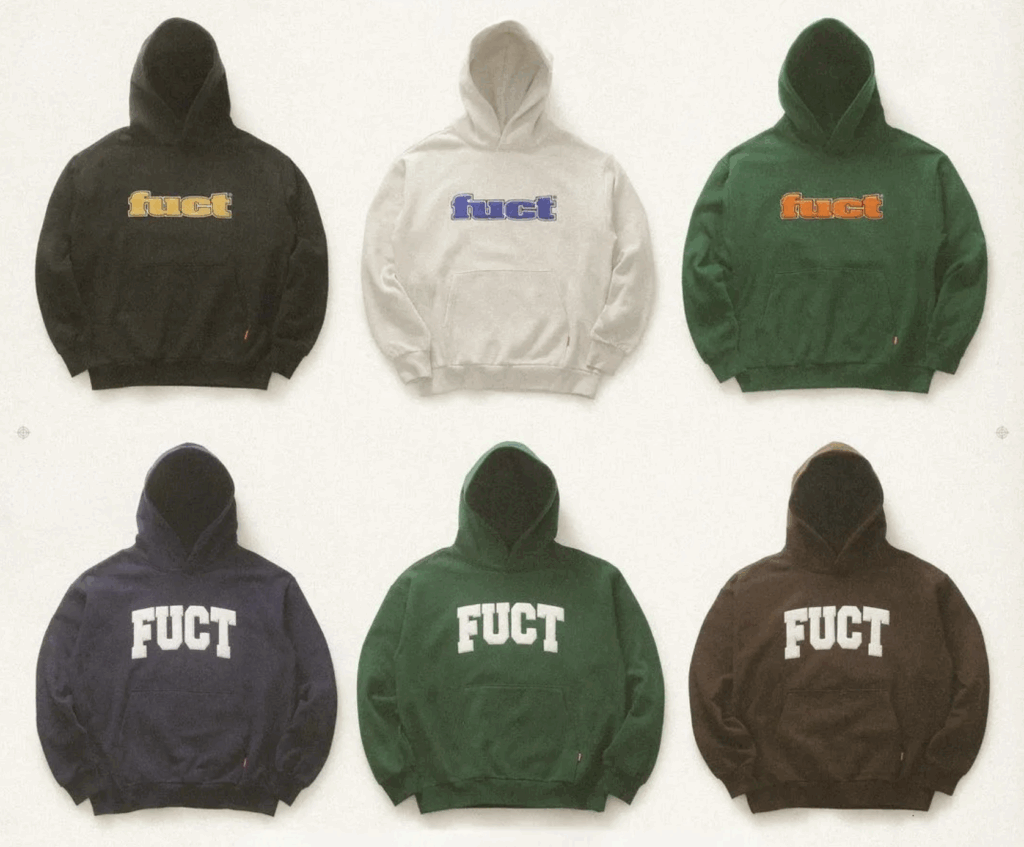The U.S. Court of Appeals for the Federal Circuit has once again placed Erik Brunetti, the provocateur behind cult streetwear label FUCT, at the center of the ongoing debate over what words can, and cannot, function as trademarks. In an opinion on August 26, the Federal Circuit vacated and remanded the Trademark Trial and Appeal Board’s (“TTAB”) refusal to register the mark FUCK for goods ranging from sunglasses and jewelry to bags and retail services.
The case puts unsettled boundaries of trademark law in the spotlight in the wake of the Supreme Court’s decisions in Matal v. Tam (2017) and Iancu v. Brunetti (2019), which struck down statutory bars on “disparaging” and “immoral or scandalous” marks as unconstitutional viewpoint discrimination.
The Background in Brief: Brunetti filed four intent-to-use applications in 2019 seeking to register the word FUCK in standard characters across multiple classes. After the Supreme Court’s Iancu v. Brunetti ruling invalidated the Lanham Act’s bar on “immoral or scandalous” matter (a victory for Brunetti’s earlier FUCT mark), the USPTO re-examined the applications under a different theory: that the word fails to function as a trademark.
According to the examining attorney, FUCK is a “commonplace term” used across goods and platforms to convey emotions rather than source identification. The TTAB affirmed that view in 2022, reasoning that the word’s ubiquity and expressive versatility meant that, in these applications, consumers would view FUCK as conveying familiar sentiments rather than as identifying a single source. The Board did not impose a categorical rule that the term is unregistrable in all contexts.
The Federal Circuit’s Opinion
Writing for the court this week, Judge Dyk agreed that Brunetti’s constitutional arguments fell flat. The refusal, the court said, was not viewpoint discrimination but a neutral assessment of whether consumers would perceive FUCK as designating a single source. Nor was there evidence of retaliation for his prior Supreme Court win. But while rejecting most of Brunetti’s claims, the panel concluded that the TTAB’s reasoning was too vague to sustain. Specifically, the Board had failed to articulate a workable standard for when a widely used “all-purpose word” like FUCK can function as a trademark.
“The Board’s reasoning sounds very much as though it has taken an ‘I know it when I see it’ approach,” Judge Dyk wrote, invoking administrative law’s demand for reasoned decision-making. The court emphasized that while prior inconsistent registrations (such as USPTO approvals for “LOVE” or even for FUCK in connection with snow globes and candy) do not bind the agency, they underscore the need for clear rules.
The case was thus remanded for further proceedings, with instructions that the TTAB provide a rational explanation and coherent guidance for examining attorneys.
> The Dissent: Judge Lourie dissented, taking a more categorical stance. In his view, the record overwhelmingly showed that the f-word is too ubiquitous and multi-purpose to signal source. Unlike “LOVE” (which has a relatively fixed meaning) or “F-CANCER” (which conveys a specific message), FUCK “is primarily an expletive, expressive of a variety of definitions, or none at all.”
For Lourie, this ended the inquiry: “Anyone living in today’s society of degraded language can readily tell that the f-word does not indicate the source of the proposed trademarked goods.”
The Takeaway for Brands
The Federal Circuit’s ruling is less about free speech and more about administrative clarity. By requiring the TTAB to move beyond “I know it when I see it” reasoning, the court has signaled that even provocative terms like FUCK deserve a principled analysis.
For fashion and consumer brands, the outcome will shape how far they can push language in branding. Brunetti himself, who successfully secured registration for FUCT, remains at the edge of this legal experiment. Whether FUCK becomes protectable will now depend on how the USPTO refines its doctrine.
The case is In Re: Erik Brunetti, 2023-1539 (Fed. Cir.).














